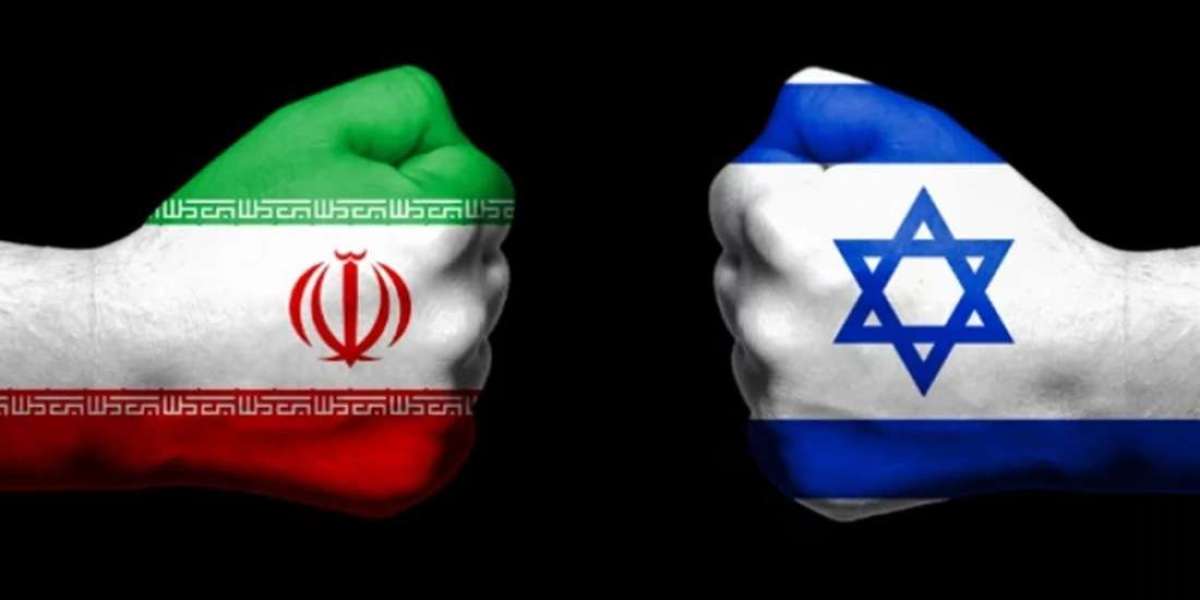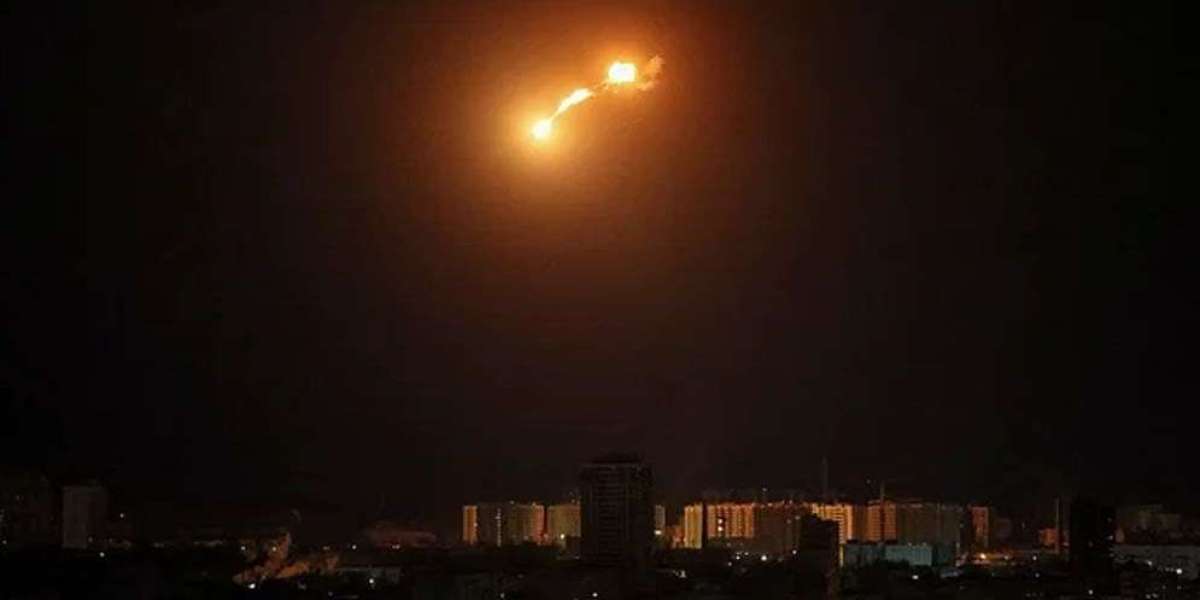Iran Attacks Israel: Analysis of Recent Attacks Between Israel and Iran
October 5, 20246 Mins Read
International Desk: The scope of the ongoing conflict between Israel and Hezbollah is constantly expanding. On October 1, Iran fired about 200 missiles at Israel. After the attack, the United States publicly announced its support for Israel. It is feared that this situation may get worse in the coming days.
Israel-Iran
Israel and Hamas have been at war for the past year. As a result, more than 40,000 people lost their lives in Gaza and the West Bank.
Israel has begun targeting Hezbollah in recent days. Israel is also attacking Lebanon by land targeting Hezbollah bases. The Arab countries as well as many countries in the world are clearly divided over this escalating conflict.
About two months ago, the head of Hamas, Ismail Haniyeh, was killed in Tehran, the capital of Iran. He was the leader of Hamas since the 1980s.
The organization confirmed the death of Hezbollah leader Hassan Nasrallah in an Israeli attack on September 28. Since then, the conflict in the Middle East has become more serious.
Israel continues airstrikes on Hezbollah hideouts in Lebanon. In the meantime, they have started a military campaign against Hezbollah.
After the death of Ismail Haniyeh, there was no immediate military response from Iran, but on October 1, it launched a missile attack on Israel, further escalating the conflict in the Middle East.
Iran wants to unite Muslim-majority countries against Israel. Iran has already called on major Muslim countries to stop commercial relations with the country.
On the other hand, countries like the United States, Britain and Germany stand by Israel. Not only that, but also helping them in this war.
Dutch politicians and parliamentarians have been seen speaking out against Iran's Supreme Leader Ayatollah Ali Khamenei on the social media X handle (formerly Twitter) after the recent attacks in Israel.
On October 1, Iran launched a series of missiles aimed at Israel.
Arab countries for whom?
While the Sunni Muslim-majority countries of the Arab world have not publicly condemned the killing of Hezbollah leader Hassan Nasrallah in an Israeli strike, they have spoken up for Lebanon's sovereignty. While some Arab countries have remained silent on the conflict, some have called for an immediate ceasefire along the Lebanese-Israeli border.
Let's see what countries are saying.
Saudi Arabia
After Israel's deadly attack on the Rafah refugee camp nearly four months ago, Saudi Arabia said Israel must accept the existence of Palestine. At that time this statement of Saudi Arabia was considered very important.
After the death of Hassan Nasrallah, Sunni-led Saudi Arabia said in a statement last week that what is happening in Lebanon is a matter of deep concern. In that statement, Saudi Arabia also referred to Lebanon's sovereignty and security. However, there is no mention of Hassan Nasrallah.
Experts believe the Saudi leadership realizes that if they turn their backs on the Palestinian cause, it will affect their image in the Middle East and globally.
Saudi Arabia has become a holy place for Muslims because of Mecca and Medina. Every year millions of Muslims visit Saudi Arabia to perform Hajj. The headquarters of the Organization of Islamic Cooperation, or OIC, is also located in Saudi Arabia. The OIC is considered a Saudi-led organization.
In this situation, Saudi Arabia's flexible attitude can damage the country's image. On behalf of the GCC, the Organization's Secretary General Jassim bin Al-Budaybi called for an immediate ceasefire on the Lebanon-Israel border.
On behalf of the GCC, the organization's Secretary General Jassim bin Al-Budaybi called for an immediate ceasefire on the Lebanon-Israel border.
United Arab Emirates
The Sunni-led UAE has remained silent on Hassan Nasrallah's death and its aftermath.
Along with the UAE, Qatar and Bahrain are also silent on this issue. However, the 'Gulf Cooperation Council' or GCC, made up of six Gulf states - Bahrain, Oman, Qatar, Saudi Arabia, the United Arab Emirates and Kuwait - issued a statement supporting Lebanon's sovereignty, security and stability.
The GCC has called for an immediate ceasefire on the Lebanon-Israel border. The statement said not to keep any weapons without the permission of the Lebanese government. At the same time it is mentioned that Lebanon should not be under the administration of any other country.
Who sided with the Israeli-Palestinian issue?
Qatar
Qatar is in favor of stopping this conflict by discussing with all sides about the conflict in the Middle East. However, that country has no formal relations with Israel.
Egypt
Egyptian President Abdel Fattah al-Sisi spoke by telephone with Lebanese Prime Minister Najib Mikati after the death of Hezbollah leader Hassan Nasrallah. During those talks, without mentioning Hassan Nasrallah by name, President Abdel Fattah al-Sisi said Egypt was against violating Lebanon's sovereignty.
Egypt's position against them is based on Iran's proxies and policies. However, they are seen holding 'informal' talks with Iran.
After the death of Hassan Nasrallah, President Abdel Fattah al-Sisi said that the situation in the region is very serious due to the conflict. The Egyptian president said that Egypt wants to ensure the stability and security of the region at any cost.
Security personnel are trying to disperse the protesters after the death of Hassan Nasrallah.
Jordan
Jordan shares an Arab border with the West Bank and hosts a large number of Palestinian refugees. A large part of the population fled to Jordan when Israel was formed. Jordan stood by these Palestinians and advocated a 'two state' policy.
In 1994, Jordan and Israel signed a peace treaty, whereby Jordan recognized Israel.
Last April, Jordan was seen playing an effective role alongside America and Britain to protect Israel from Iran's drones and missiles.
However, Jordan's King Abdullah II said in a statement that they shot down the Iranian drone as part of defending their country, not to help Israel.
Türkiye
Türkiye and Israel have had diplomatic relations since 1949. Turkey is the first Muslim-majority country to recognize Israel.
However, relations between Türkiye and Israel have seen ups and downs since 2002. On the Palestinian issue, Türkiye has always opposed Israel and shown an aggressive attitude towards them.
Who is India for?
Amid the Israel-Iran conflict, India has issued advisory statements to its citizens living in the two countries. India is in favor of a peaceful solution to this conflict issue.
Incidentally, India was one of the first countries to recognize the Palestinian state in 1988. But in recent years, the situation in the Middle East has not clearly seen India leaning towards any one country.
Last month, the UN General Assembly passed a resolution calling for an end to the Israeli occupation of Gaza and the West Bank.
The proposal was brought on the advice of the International Court of Justice ie ICJ. 124 member states voted in favor of the resolution in the 193-member UN General Assembly.
14 countries voted against the proposal. 43 countries including India decided to abstain from voting. India was the only country among BRICS, comprising Brazil, Russia, India, China and South Africa, to abstain from the vote.
Who is Pakistan supporting?
14 countries such as United States, Fiji, Hungary, Argentina voted against this resolution of the United Nations General Assembly.
On the other hand, Pakistan, China, Bangladesh, Sri Lanka, Maldives, Malaysia and Russia voted in favor of the proposal.
The UN General Assembly vote was described as a 'turning point' in the 'struggle for freedom and justice' by Riyad Mansour, the Palestinian ambassador to the UN.
On the other hand, Israeli Ambassador Danny Danon called the vote a 'shameful decision'.
After the death of Hezbollah leader Hassan Nasrallah, the people of Pakistan demonstrated strongly against Israel. Incidentally, protests have also been seen in India's Kashmir and Lucknow.
On October 7, 2023, Hamas launched a large-scale planned attack on Israel. About 1,200 Israelis were killed in that attack.
After that, Israel started a military operation in Gaza. Israeli attacks have so far killed thousands of people in Gaza and the West Bank.
The death toll in Israeli attacks targeting Hezbollah addresses is also increasing. As the conflict spreads, the situation is becoming increasingly dire. Source: BBC Bangla


















































